On the morning of October 22, at the 10th Session of the 15th National Assembly, Minister of Education and Training Nguyen Kim Son, authorized by the Prime Minister, presented a report on three draft laws, including: Law amending and supplementing a number of articles of the Law on Education; Law on Higher Education (amended); Law on Vocational Education (amended).
Increase initiative and autonomy for the Ministry of Education and Training , local authorities and educational institutions
The Minister said that the development and promulgation of the above laws is a necessary step to remove "bottlenecks" in the field of education and training; enhance the autonomy of educational institutions in association with ensuring quality, effectiveness and efficiency, while meeting new requirements on decentralization, administrative procedure reform, streamlining of organizational apparatus and implementation of a two-level local government model.
The draft Law amending and supplementing a number of articles of the Law on Education was developed to institutionalize a number of important contents of the Party, especially Resolution No. 71-NQ/TW of the Politburo such as: stipulating that lower secondary education is compulsory education, universalizing preschool education for children from 3 to 5 years old; stipulating a unified set of textbooks nationwide; not organizing school councils in public educational institutions...
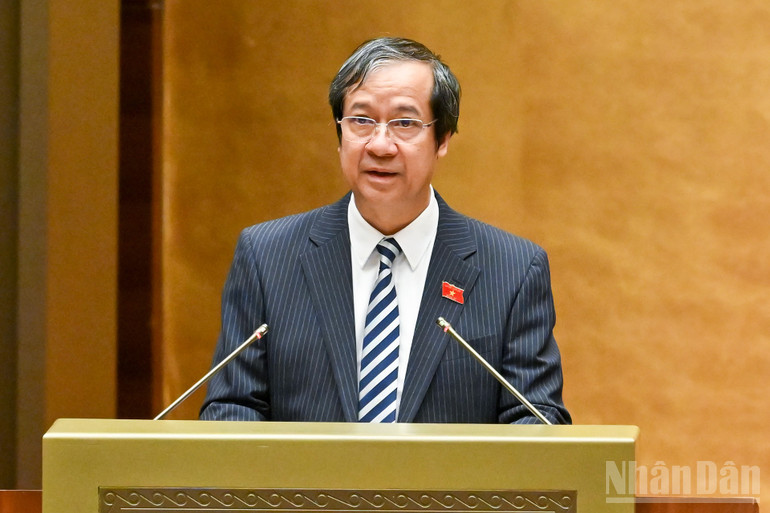
The revised and supplemented contents focus on strengthening decentralization and delegation of authority in education management, increasing the initiative and autonomy of the Ministry of Education and Training, local authorities and educational institutions; adding vocational secondary education at the same level as high school to the national education system; clarifying the direction of post-secondary education streaming in accordance with the capacity, strengths and talents of learners.
At the same time, remove obstacles and difficulties in practical training of specific professions in the field of art; stipulate that diplomas and certificates can be issued in paper, electronic or digital form; separate local educational materials from textbooks and assign the authority to compile, appraise and approve to localities.
According to Minister Nguyen Kim Son, the draft will affect about 69/126 current administrative procedures, in the direction of not directly regulating administrative procedures in the Law but transferring them to regulations in the Government's Decree, while at the same time cutting down, digitizing and strongly decentralizing to localities as well as educational institutions, contributing to improving management efficiency and creating convenience for learners and schools.
Specifically, the procedure for granting junior high school diplomas is eliminated, the principal of the school/head of the facility implementing the junior high school education program is assigned to confirm the transcript of the completion of the junior high school program; the regulation that diplomas and certificates can be issued in paper/electronic/digital form creates a legal basis for digitizing, integrating and sharing data on diplomas and certificates...
Supplementing the mechanism to revoke the operating license of weak training sectors that do not ensure quality
The focus of the draft Law on Higher Education (amended) affirms that the State plays a role in creating, ensuring resources and fairness in higher education, while confirming the autonomy of training institutions regardless of the level of financial autonomy, linking autonomy with the mechanism of self-responsibility and accountability.
The breakthroughs of the draft Law focus on perfecting the system, improving management capacity, increasing synchronous and unified command in the system; investing with focus and key points, developing a modern interconnected system, attracting excellent scientists; strengthening policies to directly support learners; and eliminating formal accreditation.
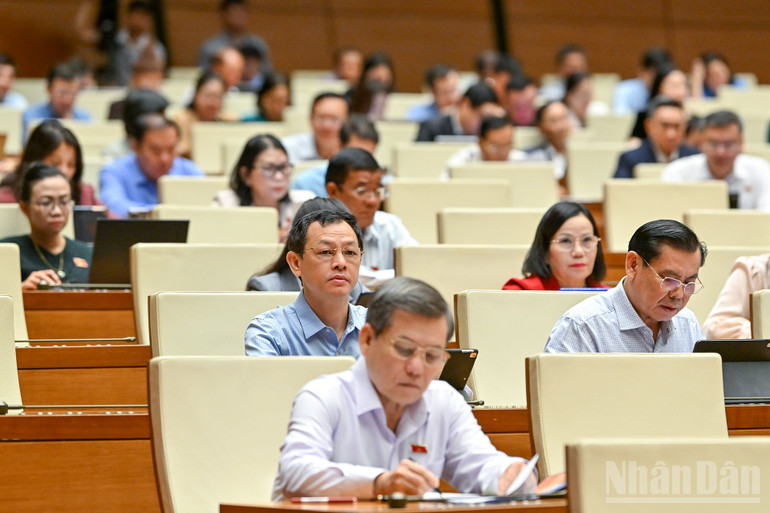
The revised and supplemented contents include 22/46 articles (accounting for about 48%), focusing on perfecting the university autonomy mechanism associated with self-responsibility and accountability, consolidating the organizational and administrative model, improving the effectiveness and efficiency of state management, especially applying solutions to improve training quality, improve programs, enrollment, accreditation, finance, and teaching staff; standard management and shifting from pre-control to post-control.
In addition, abolishing school boards in public institutions (except for public universities established under agreements between governments), defining the Board of Directors, School Council, and Investors in private educational institutions; affirming autonomy as a legal right and not depending on financial level, adding mechanisms to stop enrollment, grant licenses and revoke operating licenses for weak training sectors that do not guarantee quality...
In addition, the draft Law continues to decentralize state management of higher education in the locality to the People's Committees at the provincial level, linking training with local human resource needs. Higher education institutions are autonomous in training and academic activities, building and developing training programs, organizing training in various forms and models; scientific research, finance, human resources, international cooperation and educational quality assessment.
Clearly establish the role of enterprises as an important subject in vocational education
The draft Law on Vocational Education (amended) consists of 9 chapters and 42 articles (37 articles less than the current Law) with many new points.
Accordingly, the draft ensures comprehensive autonomy for vocational training institutions, regardless of financial level, and identifies vocational education as key in developing a highly skilled workforce, prioritized in the socio-economic development strategy and in state budget allocation.
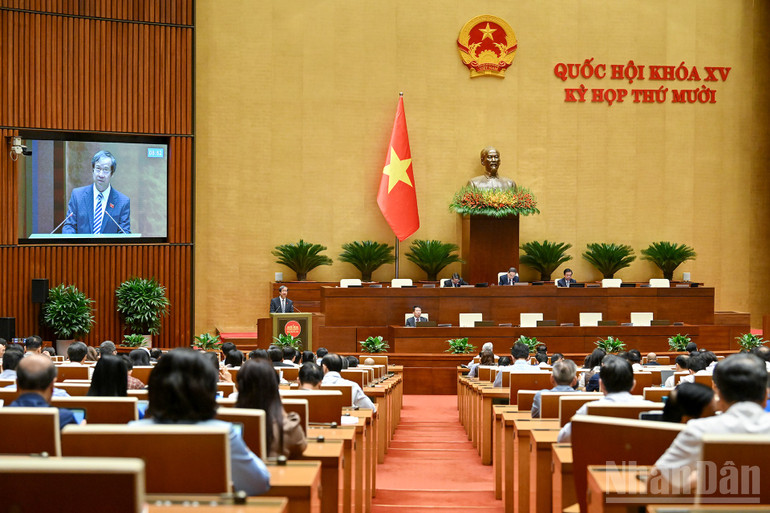
At the same time, it is necessary to clearly define the levels of qualifications and establish a mechanism for organizing vocational education activities according to new standards; adjust the capacity standards, rights and obligations of teachers and vocational trainers; emphasize publicity, transparency and effective use of finance and assets...
Regarding some important additional contents, Minister Nguyen Kim Son said that the draft adds a vocational secondary school model - a new level of education equivalent to high school, to diversify choices for learners in the national education system.
Along with that, the Law expands the types of facilities participating in vocational education, allowing schools, centers, businesses, cooperatives and other organizations to participate in training, creating a wider and more flexible vocational education network, especially granting autonomy to facilities.
The draft stipulates the recognition of learning outcomes and accumulated professional competencies, creating opportunities for learners to be flexible and convenient when transferring or transferring. At the same time, clearly establishes the role of enterprises as an important entity: participating in program development, teaching, organizing internships, and evaluating results; accompanied by a mechanism to establish a corporate human resource training fund to proactively share the responsibility of training highly skilled human resources.
Source: https://nhandan.vn/de-xuat-ap-dung-mot-bo-sach-giao-khoa-thong-nhat-toan-quoc-post917059.html







![[Photo] Prime Minister Pham Minh Chinh chairs meeting on railway projects](https://vphoto.vietnam.vn/thumb/1200x675/vietnam/resource/IMAGE/2025/10/23/1761206277171_dsc-9703-jpg.webp)
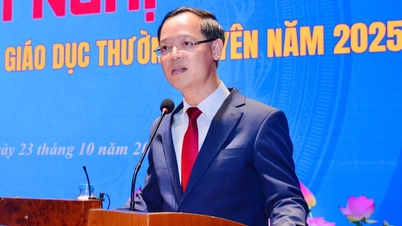





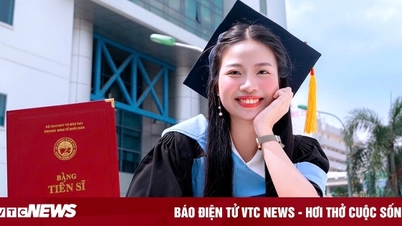








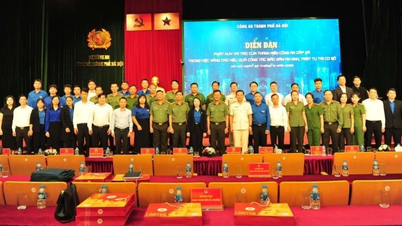
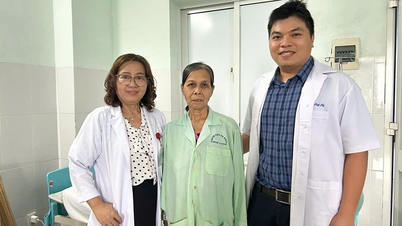
![[Photo] Prime Minister Pham Minh Chinh chairs meeting on railway projects](https://vphoto.vietnam.vn/thumb/402x226/vietnam/resource/IMAGE/2025/10/23/1761206277171_dsc-9703-jpg.webp)




















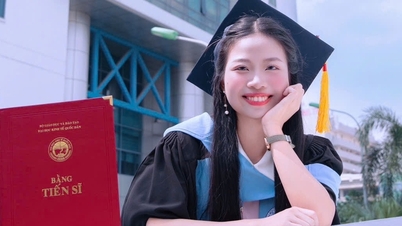
















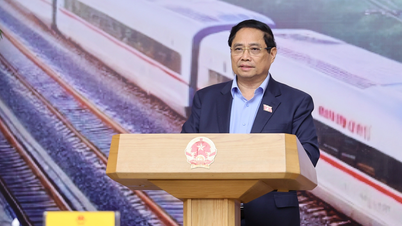
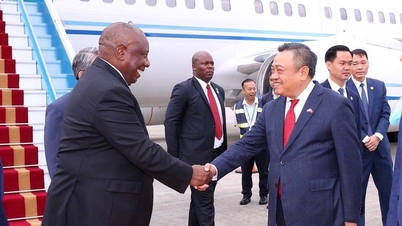









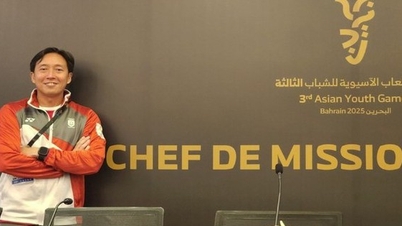

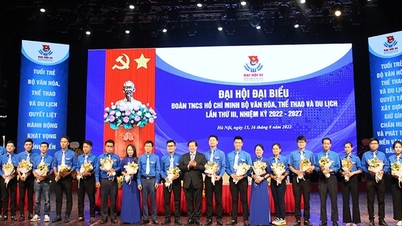
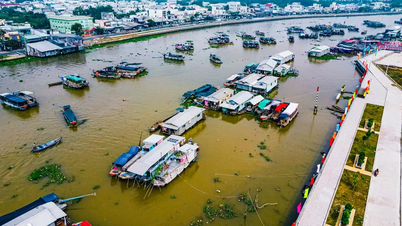

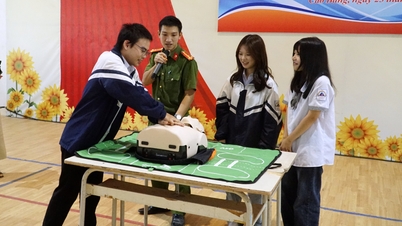

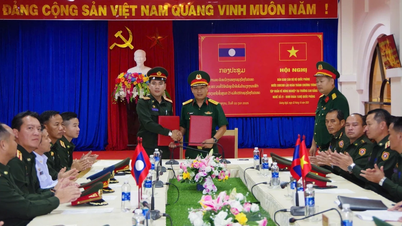

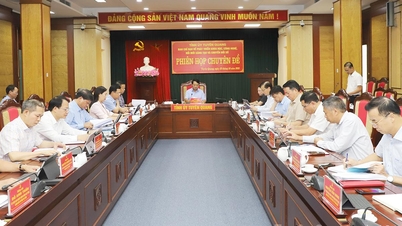

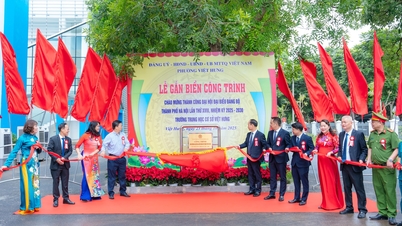
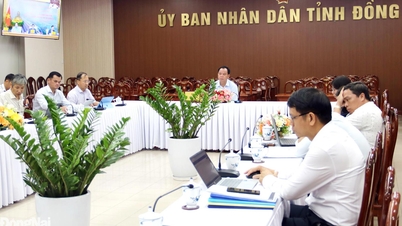
















Comment (0)